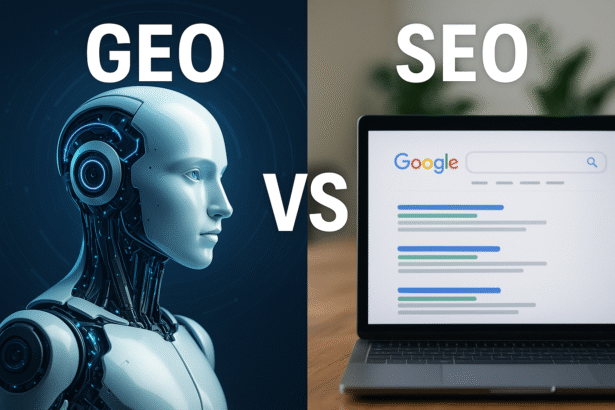For more than two decades, Search Engine Optimization (SEO) has been the backbone of digital visibility. Businesses optimized websites with keywords, backlinks, and meta descriptions to appear on the first page of Google. But in 2025, a new player is reshaping the rules of discoverability: Generative Engine Optimization (GEO).
What is GEO?
GEO is the process of optimizing your content so that AI-driven engines like ChatGPT, Perplexity, Gemini, and other generative platforms can find, interpret, and surface it as part of conversational answers. Unlike SEO, which focuses on keywords and ranking on search result pages, GEO emphasizes context, authority, and conversational quality.
When users type or speak natural language queries into AI assistants, the answers they receive often bypass traditional search engines altogether. If your brand’s content isn’t optimized for generative AI, you risk being invisible in this new discovery layer.
SEO vs GEO: The Key Differences
- Query Style
- SEO: Optimized for short, keyword-based searches like “best laptops 2025.”
- GEO: Optimized for conversational prompts like “Which laptops are best for remote workers in 2025 and why?”
- Content Focus
- SEO: Keywords, backlinks, and technical site health.
- GEO: Structured answers, Q&A formatting, and context-rich storytelling.
- End Goal
- SEO: Ranking high on a search results page.
- GEO: Being selected by AI engines as a trustworthy source within a generated answer.
Why GEO Matters Now
Generative AI isn’t a fad—it’s fast becoming the default gateway to information. Recent studies show that younger audiences, especially Gen Z and Millennials, are increasingly turning to AI-powered platforms before Google for answers.
If SEO is about being found on page one, GEO is about being the answer itself. That makes GEO not just a trend but a necessity for brands that want to remain visible.
How to Implement GEO in Your Strategy
- Adopt Conversational Content
Write in natural Q&A formats. Anticipate the “who, what, why, how” questions your audience might ask. - Emphasize Authority
AI models pull answers from trusted, high-quality sources. Publish authoritative, well-researched content supported by credible data. - Use Structured Data
Schema markup, FAQs, and knowledge panels help AI engines contextualize your content. - Prioritize Value, Not Keywords
Instead of stuffing keywords, focus on insights, actionable takeaways, and storytelling that resonates with both readers and machines.
The Future of Search
The shift from SEO to GEO doesn’t mean SEO is dead—it means it’s evolving. Technical SEO will still matter for visibility in traditional search, but GEO is becoming the new frontier of digital marketing.
Forward-thinking brands that adopt GEO today will have a competitive edge tomorrow, ensuring their voice is not just ranked but heard in the conversations powered by AI.









